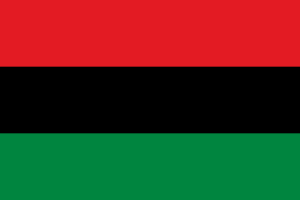Definitions:Afrocentrism
Afrocentrism
 | |
| Caption | Pan African Flag |
|---|---|
| Name | Afrocentrism |
| Related Terms | Pan-Africanism |
Summary
Afrocentrism, cultural and political movement whose mainly African American adherents regard themselves and all other Blacks as syncretic Africans and believe that their worldview should positively reflect traditional African values. The terms Afrocentrism, Afrocology, and Afrocentricity were coined in the 1980s by the African American scholar and activist Molefi Asante.
 | |
| Caption | Pan African Flag |
|---|---|
| Name | Afrocentrism |
| Related Terms | Pan-Africanism |
History
Afrocentrism was influenced by several earlier Black nationalist movements, including Ethiopianism and Pan-Africanism. The latter became a major presence in the United States and elsewhere with the emergence of the Jamaican activist Marcus Garvey, who promoted the idea of an African diaspora and called for a separate African state for Black Americans. Garvey’s bitter enemy, W.E.B. Du Bois, who helped to found the integration-minded National Association for the Advancement of Colored People) in 1909, was also interested in Pan-Africanism and organized world conferences on the subject from 1919 to 1927. Other antecedents included the Negritude literary movement, launched in France in the 1930s by Francophone African intellectuals such as Léopold Senghor, and the Nation of Islam, whose leaders—including Elijah Muhammad and Malcolm X—preached not only the need for a Black homeland but also the cultural and genetic superiority of Blacks.
Equally important to Afrocentrism were figures such as the African American scholar Maulana Karenga, whose work resulted in the creation of the Afrocentric [1] holiday of Kwanzaa in 1966; the Senegalese scientist Cheikh Anta Diop, who wrote about the cultural unity of Africa, the African nature of Egyptian civilization, and the “theft” of African civilization by Europeans; and the African American historian Carter G. Woodson, who emphasized the teaching of African history as a way of counteracting feelings of inferiority inculcated in Black Americans through centuries of subordination by whites.
Afrocentrism gained significant legitimacy in the United States from the 1960s as a result of the civil rights movement, the multicultural movement, and the immigration of large numbers of nonwhites. Its following increased dramatically during the 1980s, when many African Americans felt alienated from the “conservative revolution” of President Ronald Reagan but were simultaneously attracted by the conservatives’ call for a return to traditional values. The Afrocentrists’ complicated reaction to the conservative revival both reflected and reinforced conservative elements in Afrocentric thinking.
Etymology
The term Afrocentrism [2] combines the prefix "Afro-" (pertaining to Africa or people of African descent) with "centrism," implying a perspective or focus. Thus, Afrocentrism refers to a worldview that centers African culture, history, and contributions as primary or foundational, particularly in contexts where these aspects have been marginalized or overlooked.
The term began gaining traction in academic and cultural discourse in the 20th century, especially in the 1960s and 1970s amid movements for civil rights and decolonization. Scholar Molefi Kete Asante is credited with formally theorizing Afrocentrism in the 1980s, framing it as an intellectual and cultural standpoint that reclaims African perspectives in history, culture, and knowledge systems.